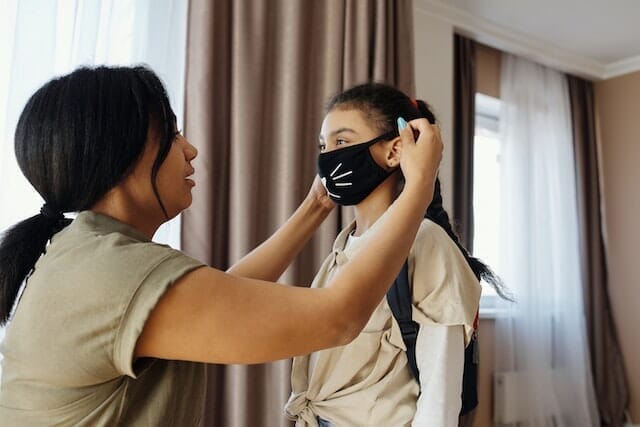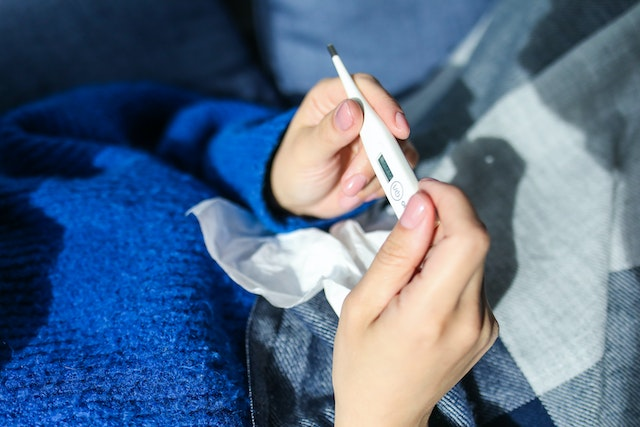
How many days does Omicron last in the body?
Time to read 4 min
Time to read 4 min
The duration of the omicron variant in the body completely depends on the severity of the infection. The incubation of the virus is also different in different people, but generally the virus can last between 5 and 10 days after the first positive test.
When checking for how many days does omicron last, it is also important to verify whether you have a higher viral load. A complete omicron test can help in determining whether you are able to infect others and if you have been exposed in the last few days.
With Omicron mutating from COVID 19, it is important to check how long do the symptoms of Omicron infection last. To be completely sure of whether you have the virus or not, you need to get tested for Omicron and the delta variant.
The onset of symptoms depends on the viral load and the person's immune system. You can start to experience symptoms as early as within 3 days of incubation, till almost a week after getting exposed.
Your symptoms can also escalate over time, which is why it is important to track them consistently. You can check your temperature if you have a fever, and track your running nose or coughs if they are getting worse.
If you suspect that you may have been exposed to the virus, then you should buy an Omicron test from MyDiagnostics. This will help you learn more about your viral load, and whether you need to start quarantining and changing your daily schedule.
Omicron symptoms vary from person to person, which is why it is important to check for all known symptoms. You can find that Omicron incubates differently in people, showing signs at various intervals. That's why the range of symptoms needs to be checked in people.
In cases of COVID 19 with the omicron variant, it is important to test for the variant regardless of whether you are vaccinated or not. Doctors understand that Omicron is a critical virus that can produce severe reactions in different people.
A severe fever that extends for several days, can be a sign of Omicron. This can be checked with an Omicron test to determine if your immune system is dealing with the virus for several days. The incubation periods of 3-4 days can be back-tracked to check if you have been exposed to someone with the virus as well.
A runny nose that shows no signs of stopping can be a sign of Omicron. You may also experience shortness of breath, wheezing, and other infection signs. You can differentiate this from a flu from the severity of the running nose. It may be a clear sign that you may have Omicron, which can be determined with the right Omicron test.
Many individuals experience back pain and muscle pain when they are dealing with Omicron. It is an important symptom that shouldn't be ignored and needs to be tracked in terms of severity. You can continue to take painkillers but you should take a precautionary Omicron test if you also have a sore throat and running nose.
The virus can impact the respiratory and immune function of the individual, which can lead to lack of energy and vitality. This
Crowded places should be avoided at all times. Your risk of infection rises when you are in proximity with others in shopping malls, functions, events, and packed restaurants. You should also avoid travelling in densely packed vehicles as well.
Spending extended periods in high-risk zones can lead to infection as well, which is why limiting your time spent in hospitals and other infection zones is important. You should follow the right protocols to prevent reinfection if you have already had Omicron as well.
Hygiene practices such as washing hands, using sanitizers, and avoiding touching surfaces, can help you protect yourself from infections. While it is important to avoid being too close to others, you should also avoid touching surfaces.
If you find that your symptoms are worsening over time, then it is important to get an Omicron test done. This can help you understand your viral load better, and get the right insights on time.
You can also check if others around you are experiencing similar symptoms. If they are, then they may also be at risk for the virus as well. It's vital to quarantine in this case.
Getting tested regularly can also help in lowering the risk involved with the Omicron variant. You can improve your overall ability to overcome the virus when you have the right information about your viral load. Regular tests can help in distinguishing whether you have the flu or Omicron.
You can get the test of Omicron through the convenience of at-home delivery. You can buy an Omicron test through MyDiagnostics and receive your testing kit with ease. This helps you get a complete test performed at home, with timely information on your viral load.
You can also get your results instantly, which makes it easier to diagnose whether you have the variant. You can start quarantining immediately, and initiate medication. You can get repeatedly tested when you buy an Omicron test at home through MyDiagnostics.
* Medical Disclaimer - The following information is for educational purposes only. No information provided on this website, including text, graphic, and images, are intended as substitutes for professional medical advice. Please consult with your doctor about specific medical advice pertaining to your condition(s).
